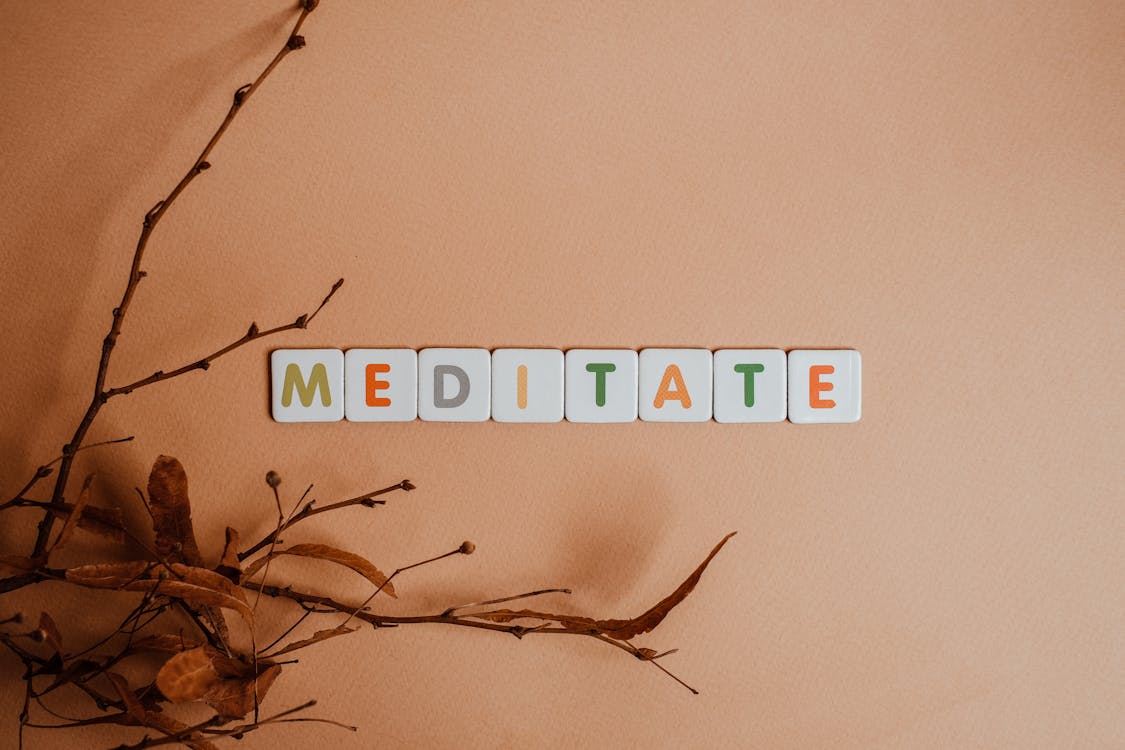The Power of Meditation: Mind, Mood & Health
5 minuteRead

Have you ever stopped and thought – how do you cope with stress in a busy world? Well, the answer is meditation. Our fast-paced lifestyles often take a toll on our physical and mental well-being. To escape the symptoms of anxiety and depression, it is important that individuals of all age-groups start practising meditation. It is often referred to as a path of self-awareness. For centuries together, Hindu, Buddhist and Taoist communities have mastered the art of all about meditation. Meditating for a few minutes everyday has short-term as well as long-term benefits. It can bring joy, peace and enthusiasm as the prana (life energy) level in the body increases. In fact, in the post-COVID world, psychologists and cognitive neuroscientists have been emphasising the benefits of meditation. It is definitely the route to feel refreshed, energised and focused. As you begin the practice, your mind will witness noticeable changes such as a calm and stable mind.

6 Surprisingly Powerful Benefits of Meditation
In this blog, we aim at discussing the mental, emotional, spiritual and physical benefits of meditation.
1. Reduced Stress: Studies have proven that regular meditation can reduce stress. Meditating for at least ten minutes each day can make you feel more relaxed. It is known to lower the levels of cortisol (stress hormone) in the body. You can engage in mindful meditation or mantra meditation to shift your focus from distracting thoughts. However, repeating a mantra such as a word (Om) or phrase is said to have a more calming effect. It also ensures you are completely focused. Meditation also improves symptoms of stress-related conditions including post-traumatic stress disorder (PTSD), fibromyalgia and irritable bowel syndrome. If you’re not confident of practising meditation on your own, you can even opt for a guided meditation program on YouTube.
2. Lowers High Blood Pressure: Meditation is good for blood pressure. By meditating daily, you will be able to boost your defence against stroke, chronic kidney disease and heart attacks. It helps by reducing the strain on the heart and blood vessels. A meditation technique that lowers blood pressure is referred to as transcendental meditation. It is a type of meditation that involves repetition of a word, sound or phrase. This is usually done to stop distracting thoughts from entering the mind. However, to reduce blood pressure, you should not solely rely on meditation. A healthy diet, limited intake of sodium and alcohol, and regular exercise have an equally important role to play.
Related Blog: 'A Beginner’s Guide to Meditation'.
3. Enhanced Self-Awareness: To practice meditation, you don’t have to belong to a particular religion. There is a common misconception that meditation is only for Hindus and Buddhists. However, it can be practised by anybody regardless of their faith. There are several spiritual benefits of meditation. It can make one become more aware of themselves. When you engage in regular meditation, you might even find yourself as an inseparable part of the whole cosmos. It can also bring about true personal transformation. The more you learn about yourself, you will start accepting your flaws and imperfections.
4. Fights Addiction: For someone who is suffering from drug, alcohol and substance addiction, meditation is particularly helpful. Since it alters the brain receptors, there will be a reduced craving for such substances. Also, once you reach a level of mindfulness, you will be more aware of your cravings, and will be in a better place to manage them. In fact, a lot of rehabilitation centres use mindfulness training guided meditation techniques to help people with substance-use disorders.
5. Improves Sleep & Fights Insomnia: There are several benefits of meditation before sleep. If you’re someone who is struggling to turn off your brain at night, you should practice meditation. It is known to tackle insomnia and sleep disturbances. Since it increases the natural melatonin levels in the body, you can be assured of better sleep. If you practice deep relaxation or guided meditation even for five minutes before you sleep, you will feel a lot calmer. However, for that, you need to get in a comfortable, upright position, remove all distractions, and setup your meditation tool. Some people find candles helpful in creating a soothing setting. Follow a meditation technique that works best for you.
Related Blog: 'Yoga during Work Hours to Alleviate Stress'.
6. Improves Memory & Concentration: If you’re having a tough time focusing on your studies or work, try meditation. It increases concentration and mental clarity. It can also help fight age-related illnesses and dementia. To improve cognition, an individual should practice mindfulness meditation and awareness meditation. It helps you gain deep, non-judgemental awareness of your feelings. It also increases the density of the hippocampus. It is a part of the brain that is connected to memory and learning. Besides work, it can also help improve your concentration on daily tasks. While it does not directly improve memory, it can make one feel more relaxed, wholesome and constructive.

How Long Does It Take for Meditation to Work?
Don’t expect meditation to act as a quick fix. You can’t meditate for a couple of days and expect results overnight. Based on the meditation technique, you will start experiencing visible benefits. If you’re a beginner to meditation, we recommend you practice daily for a month, and then weigh the pros and cons. Initially, you might be tempted to give up sooner than you thought. However, keep going for at least five or ten minutes a day. Once you start meditating without your mind wandering or fluttering, you will find yourself completely immersed in a space of self-awareness and peace.
Related Blog: 'De-stress with these Hobbies in 2022!'.
Meditation is definitely the future medication for children as well as adults. Regularly engaging in yoga or any other form of mindful meditation or exercise can improve emotional, mental and physical health. Since it increases serotonin production, one’s mood and behaviour improve too. Besides personal benefits, meditation also helps you develop positive feelings and actions towards others.
Don’t take our word for it, you should give it a try and see if it is right for you. If a particular mediation technique has helped you in a certain way, let us know in the comments section below.
Write, Record and Answer! Consume Unlimited Content! All you need to do is sign in and its absolutely free!
Continue with one click!!By signing up, you agree to our Terms and Conditions and Privacy Policy.










